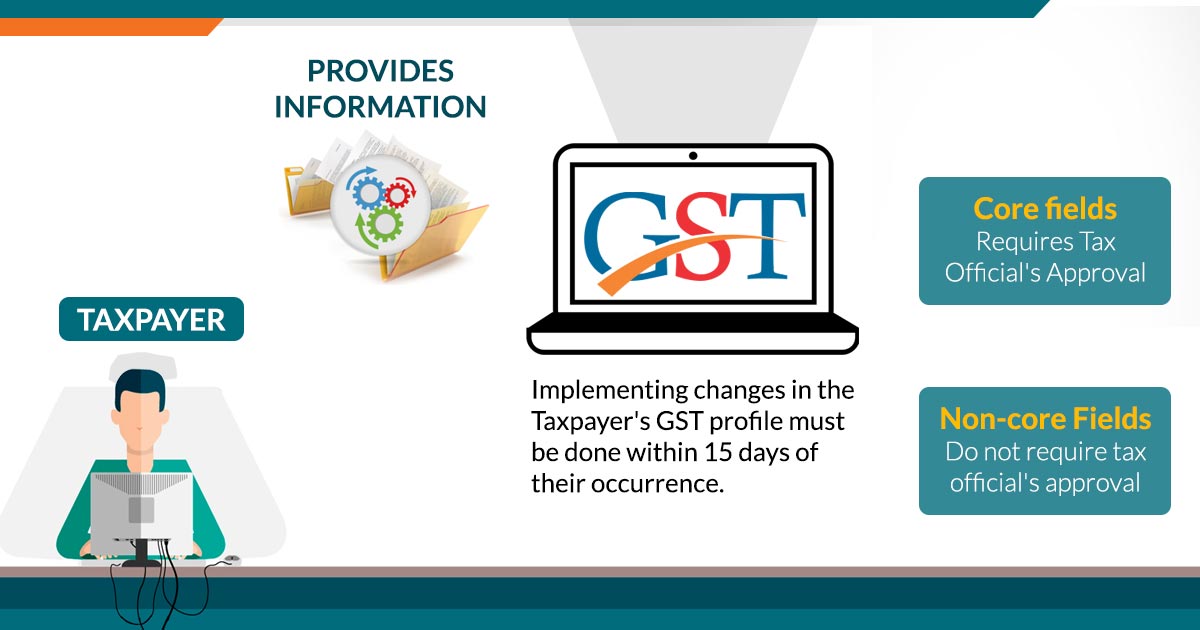Step-by-Step Process for Singapore GST Registration Explained
Step-by-Step Process for Singapore GST Registration Explained
Blog Article
The Ultimate Overview to Streamlining the GST Enrollment Process and Demands for Small Service Owners

Recognizing GST Essentials
To comprehend the basics of the Goods and Solutions Tax Obligation (GST) system, small company proprietors should initially recognize its underlying principles and implications. GST is a value-added tax obligation levied on many items and solutions for domestic intake. It aims to simplify the taxes process by changing several indirect taxes imposed by the state and central federal governments. Under the GST regimen, organizations are required to register and gather tax on part of the government, making certain openness and compliance.
Among the essential concepts of GST is input tax obligation credit history, which enables services to declare debt for tax obligations paid on their acquisitions. This device prevents the plunging impact of taxes and promotes efficiency in the tax system. In addition, GST is a destination-based tax, implying that the tax is imposed at the point of consumption as opposed to the point of beginning. This guarantees reasonable circulation of tax income amongst states based on where the services or goods are consumed. Understanding these standard principles is essential for small company proprietors to browse the complexities of the GST system and make sure conformity with the legislation.
Qualification Standards for Registration
Having actually developed a foundational understanding of GST concepts, small company proprietors should currently meet particular eligibility standards to continue with the registration procedure. In India, entities participated in the supply of items or services with a yearly accumulation turnover exceeding Rs. 40 lakhs (Rs. 10 lakhs for special category states) are required to register for GST. Additionally, specific companies such as those included in inter-state supply of goods, informal taxable persons, and those needed to pay tax under the reverse cost mechanism must sign up for GST irrespective of their turnover. Organizations that were signed up under the previous tax regime (VAT, service tax obligation, and so on) are likewise mandated to sign up under GST. Nonetheless, farming companies that only provide generate out of primary production are exempt from GST enrollment. It is vital for entrepreneur to very carefully analyze their eligibility based on these requirements to make certain compliance with the legislation and stay clear of any type of fines for non-compliance.
Papers Required for GST Registration

Simplified Enrollment Refine Steps
Adhering to the collection and verification of the requisite files, the registration procedure for GST can be browsed through a collection of simplified steps made to assist in efficient compliance for small service proprietors. Upon effective confirmation, an Application Reference Number (ARN) is released, indicating the completion of the GST registration procedure. By complying with these streamlined steps, tiny business owners can effectively register for GST and make sure conformity with tax obligation regulations.
Tips for Ensuring Conformity
To preserve regulative adherence and operational honesty, diligent oversight and positive steps are essential in guaranteeing conformity with GST needs for small company owners. Local business proprietors have to remain updated with GST guidelines, submitting deadlines, and any modifications in tax rates to prevent penalties and preserve a great standing with tax authorities. One necessary pointer for compliance is to maintain accurate and detailed documents of all purchases, including invoices, billings, and costs related to GST. Frequently resolving monetary records with GST returns can assist in determining and rectifying any type of disparities quickly. In addition, carrying out regular inner audits or seeking professional help can guarantee that business is complying with all GST policies more info here properly. It is additionally important for local business proprietors to invest in GST-compliant audit software application that can simplify the tax declaring process and minimize errors. Going to GST recognition workshops or training programs can boost understanding and compliance with GST laws, ultimately profiting the service in the long run.
Verdict
Finally, local business proprietors have to recognize the essentials of GST, meet the eligibility standards, collect necessary records, and comply with the simplified enrollment process steps to make certain compliance. By streamlining the GST registration process and needs, small company proprietors can avoid penalties and operate their companies smoothly within the lawful structure - Singapore GST Registration. It is critical for small company proprietors to stay certified and informed with GST regulations to preserve an effective service procedure
Small service owners looking for GST registration should ensure they collect and send the needed records to complete the registration process successfully. The documents needed for GST enrollment generally consist of proof of business registration or incorporation, PAN (Irreversible Account Number) card of the company identification, address and entity evidence of the promoters/partners/directors, photos, address proof of the area of service, financial institution account statements or canceled cheques, and authorization forms. Attending GST awareness workshops or training programs can boost understanding and compliance with GST laws, eventually profiting the service in the lengthy run.
By streamlining the GST registration procedure and demands, little business owners can stay clear of penalties and run their businesses efficiently within the legal framework. It is important for small service owners to stay enlightened and compliant with GST guidelines to preserve an effective organization procedure.
Report this page